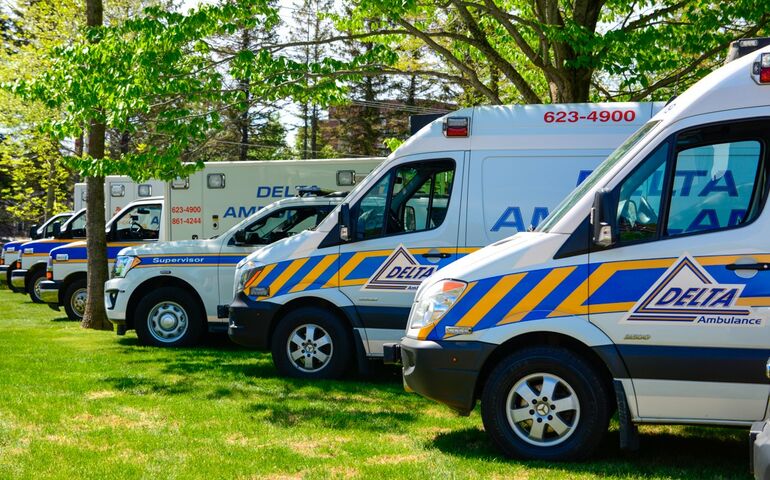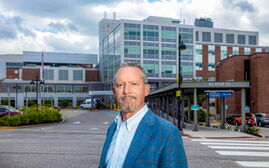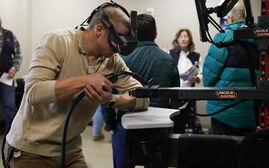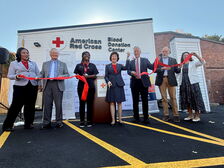Federal bill would make sure rural EMTs, ambulance services are fully reimbursed
 Courtesy / Delta Ambulance
Bills in both the U.S. House and Senate would extend add-on reimbursement for rural ambulance services, which aren't fully covered by Medicare. The Senate bill was introduced by U.S. Sen. Susan Collins, R-Maine.
Courtesy / Delta Ambulance
Bills in both the U.S. House and Senate would extend add-on reimbursement for rural ambulance services, which aren't fully covered by Medicare. The Senate bill was introduced by U.S. Sen. Susan Collins, R-Maine.
Legislation that would ensure adequate reimbursement for emergency ambulance service in rural areas, a funding program due to expire next year, is being considered in Congress.
U.S. Sens. Susan Collins, R-Maine, and Catherine Cortez Masto, D-Nev., are sponsoring the Senate legislation, joining the House, which introduced a similar bill in April.
The legislation would extend until the end of 2027 funding that closes the gap between what Medicare reimburses for emergency ambulance service and what it actually costs. The Protecting Access to Ground Ambulance Medical Services Act would make sure that ambulance providers are adequately reimbursed by Medicare for the cost of providing services, particularly in rural areas, far from hospitals and other health care, where such service is desperately needed, Collins said in a news release.
“Whether an automobile accident, a fire, a health crisis or another catastrophe, paramedics are there in those first critical minutes when courage, skill and compassion are most needed,” Collins said. "As a senator representing one of the most rural states in the country, I will continue to support the brave men and women who work around the clock to protect our communities.”
Ambulance service providers and suppliers are reimbursed by Medicare at rates below the cost of providing services, necessitating a 2% add-on payment for urban and 3% for rural and super-rural ambulances. The federal Centers for Medicare and Medicaid Services use a formula based on census information to define whether an area is urban, rural or super-rural. All of Maine's counties, except portions of Androscoggin, Cumberland, Penobscot and York, are considered either rural or super-rural.
In 2018, Congress extended the payments through Dec. 31, 2022. The legislation will extend them for another five years, because a planned review of data associated with the program was delayed by the pandemic.
Added to the issue is the fact the 2010 census miscounted some rural areas, labeling them as urban though their populations didn't change, which means ambulance service was not adequately funded in those areas.
The American Ambulance Association has been advocating for Medicare to create an appeal process that allows an area to ask for reconsideration of its status, and the proposed legislation includes that provision.
“If Congress doesn’t act, many providers in our rural communities could face major cuts in funding that would dramatically alter services available to rural Americans,” Cortez Masto said. “Without reimbursements that actually cover the costs of ambulance services, lifesaving care in rural counties could become extremely expensive or unavailable."
The ambulance association, which is advocating for the legislation, said the add-on payments "are vital in ensuring all patients have access to ground ambulance medical services."
Besides the AAA, the legislation is supported by the Congressional Fire Services Institute, International Association of Firefighters, International Association of Fire Chiefs, National Association of EMTs, National Rural Health Association and the National Volunteer Fire Council, among other first-responder organizations.














0 Comments